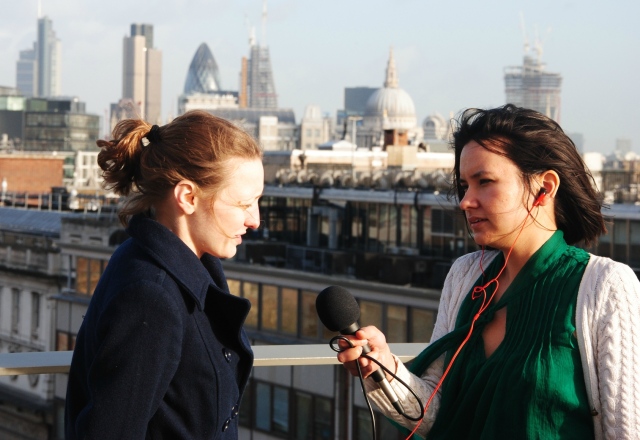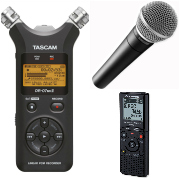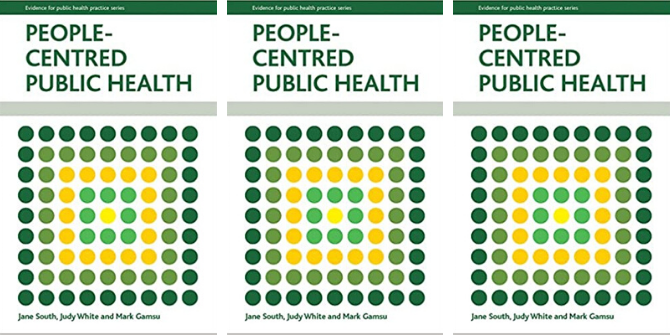 Podcasts are rapidly becoming a regular feature of online research dissemination and university brand-building, so why do only a minority of academics use them to share their research? In the first of a three-part series, Digital Editor Cheryl Brumley demystifies academic podcasting, showing that it can be a labour of love or an inexpensive side-hobby, with a vast spectrum running in between. Whichever direction you choose to go is dependent on your audience, your interests, and your schedule.
Podcasts are rapidly becoming a regular feature of online research dissemination and university brand-building, so why do only a minority of academics use them to share their research? In the first of a three-part series, Digital Editor Cheryl Brumley demystifies academic podcasting, showing that it can be a labour of love or an inexpensive side-hobby, with a vast spectrum running in between. Whichever direction you choose to go is dependent on your audience, your interests, and your schedule.
In December 2012, I gave a training session on academic podcasting at the LSE Impact of Social Sciences ‘The Future of Academic Impacts’ conference alongside Mark Carrigan, former editor of LSE British Politics and Policy blog. Many of the session’s attendees had never attempted a podcast, nor had they ever handled recording equipment, and had only approached the topic with a hesitant curiosity. Although academic podcasting has grown enormously in the last few years, the majority of academics and academic support workers are in the dark about where to begin with multimedia content and how it fits into their already overloaded academic life.
But here is the good news for the scared or the sceptical: podcasting is cheap and, depending on your audience’s expectations, it can be a surprisingly non-technical enterprise. For those who want to experiment with audio’s different forms, it can be a laborious but rewarding one.
Any cursory scan of iTunes U will yield the world’s generous share of public events lectures and specially designed educational content. For several years now universities have embraced audio/visual outputs, recognising the enormous interest that comes with educational content that is easy for students and the public to both consume and share. This can be the case for individual researchers too. Multimedia content can liven up text-heavy blogs and bring research into more general online platforms, making it available to a wider proportion of the public, all the while helping to raise your own profile.

An academic podcast comes in many forms. At its most basic it can feature a single person discussing their latest research, or a single interview with a fellow academic. You can broaden your pool of experts by having three or more participants in a discussion, or you can go right to the source by featuring participants in a case study. At the LSE Review of Books, we like to think an academic podcast can also come in the form of a radio-style production, with different segments featured under one thematic umbrella.
So where to begin? First, you need to identify your target audience. Who is it that you want to listen to your podcasts? The answer to this question will inform your initial approach and will help determine the format and time required to produce them. Different audiences have different expectations, different time schedules (and they also use different consumption platforms, which is detailed here).
For example, students are generally tolerant of long, unedited, lecture-style academic soliloquies, but if the general public is who you’re after, their attention will be harder-won, especially if your promotional platform simply thrusts your audio into a sea of very slick, professional podcasts.
If you’re going for a more targeted audience, you can certainly ‘corner the market’ by embracing the niche nature of your research. Again, long, barely-edited pieces probably won’t put off your already interested listeners.
Next, you will need to be honest about how much interest you have in audio platforms themselves, or whether it is just a means to an end. I will advocate later that the free audio-editing software, Audacity, will suit all the needs required by the casual editor and most of the needs for those editors-on-a-budget who are seriously into their sound. If you are definitely not the latter person then I’d recommend to stick to a basic format – a short monologue or a single interview.
Lastly, be realistic about your time. You may want to be the next academic podcasting star, with a serious interest in the medium itself, but you can only do what your schedule allows. Don’t let this realism put you off podcasting itself; rather it should help you determine the format that best suits your working life.
So what type of podcast works best for you? Here are a few scenarios to help you with your decision:
——————————————————————————–
Scenario 1:
Intended Audience: Students
My interest in audio: None, it’s simply a means to an end
My time: I will be juggling it alongside teaching a few classes, writing a book, and caring for my newborn baby
Type of podcast suggested: Why not record one of your lectures? Or give a five minute synopsis of your past or present research findings?
——————————————————————————–
Scenario 2:
Intended Audience: General public or academic colleagues
My interest in audio: Huge interest, actually I fancy myself the next Kirsty Young.
My time: I live in a tiny village (with fantastic internet speed) doing field work. I have plenty of free time.
Type of podcast suggested: Why not try putting together a ‘journalistic’ piece on your field work gathering voices from yourself, fellow experts, and with permission, people contributing to your research?
——————————————————————————–
You might also like:
 Editor’s Column: The Simple Guide to Academic Podcasting: Microphones and Recorders
Editor’s Column: The Simple Guide to Academic Podcasting: Microphones and Recorders
As part of the on-going series of Editor’s Columns on academic podcasting, Digital Editor Cheryl Brumley explores the technical side of the medium, arguing the range of recording equipment available makes it easy for the entry-level podcaster to gain surer footing and for the already confident podcaster to gradually take on a more challenging format.
Editor’s Column: The Simple Guide to Academic Podcasting: Post-Production and Audio Platforms
In her final post on academic podcasting, Digital Editor Cheryl Brumley talks about post-production and beyond. She gives tips for the novice sound editor, discusses the variety of sound platforms available online. She also gives a list of podcasts that might inform and inspire your own audio project.
——————————————————————————–
Cheryl Brumley is the Digital Editor for the Public Policy Group blogs and produces the LSE Review of Books podcasts. Cheryl joined the PPG in January 2012 and is a graduate from the LSE with an MSc in Theory and History of International Relations. Cheryl previously conducted research into social media and the Arab Spring at the Regional Centre for Conflict Prevention in Jordan, and researched for BBC World Service radio programmes, The Forum and The World.









1 Comments